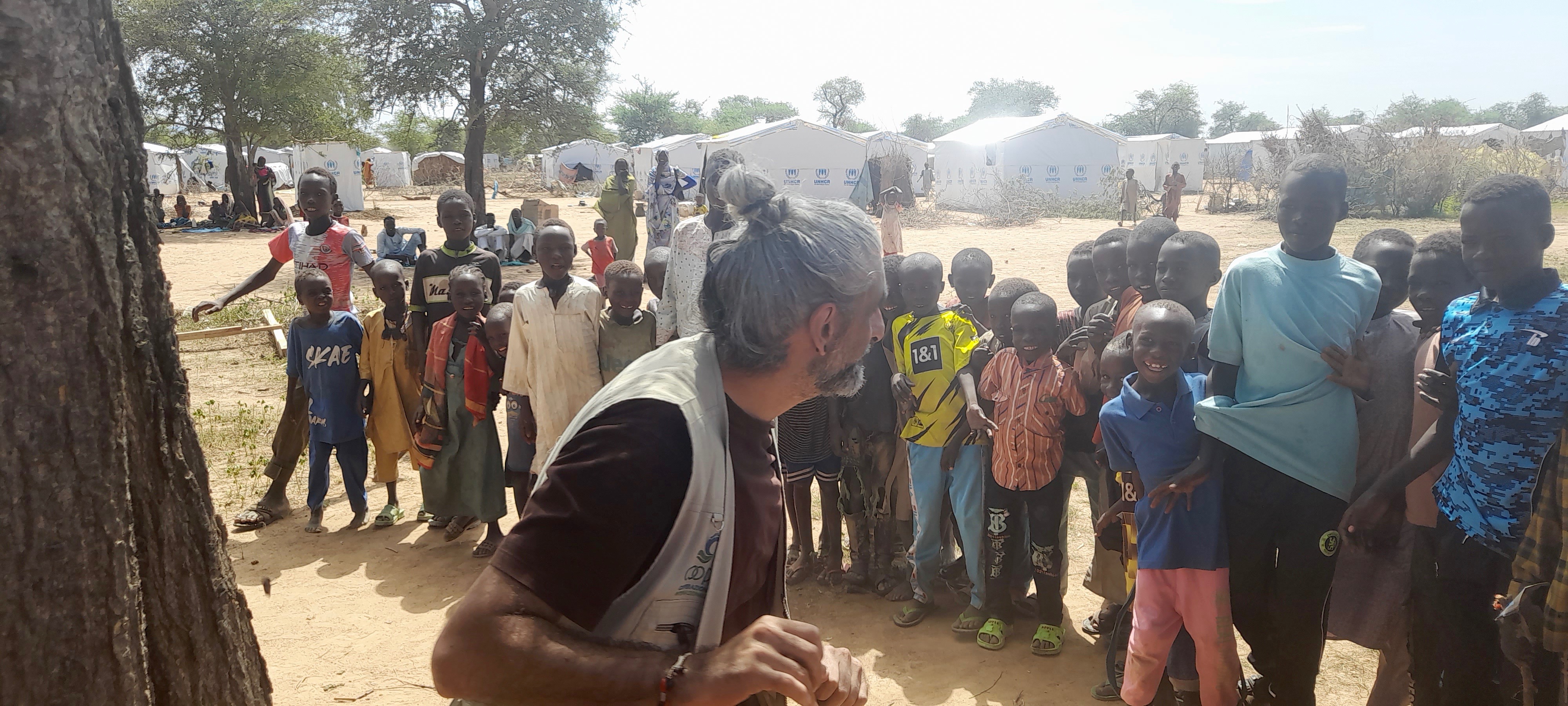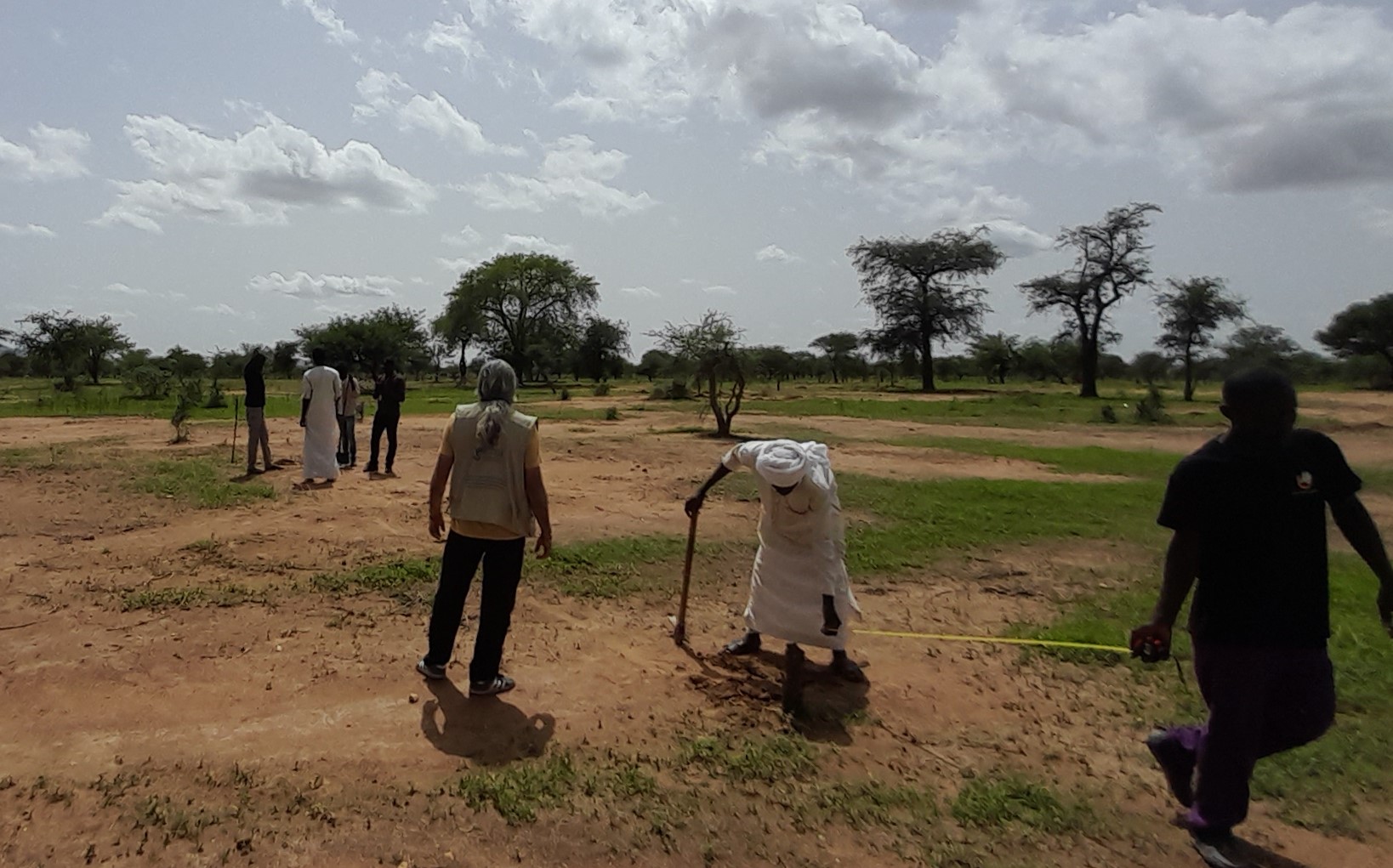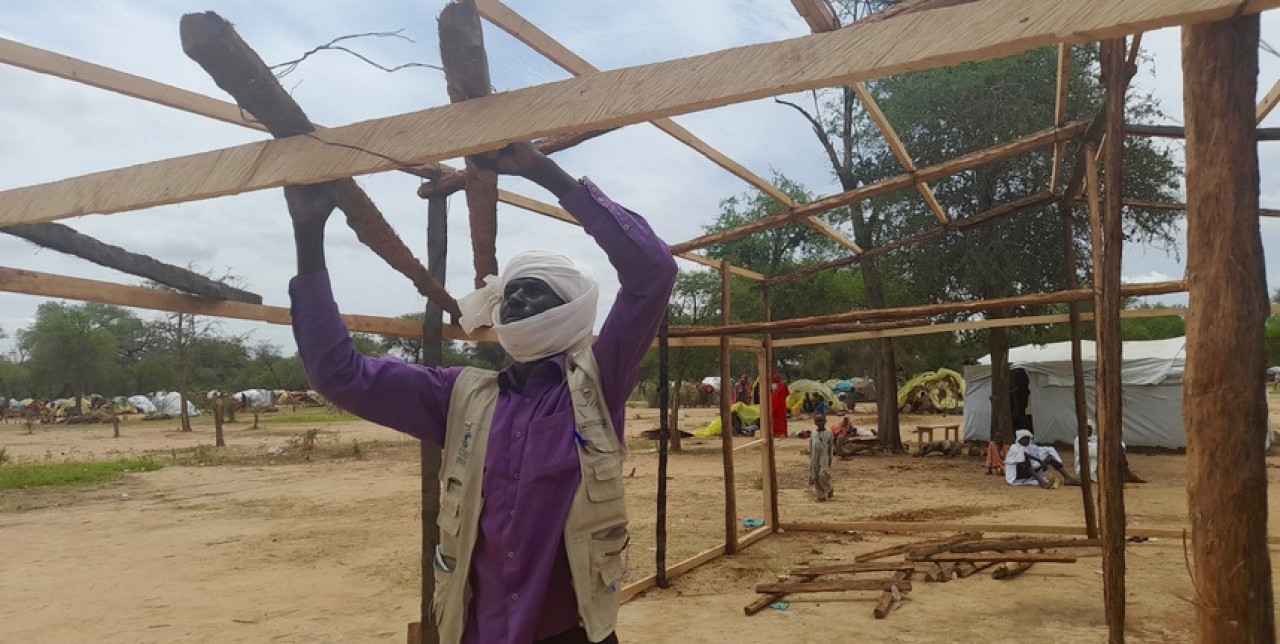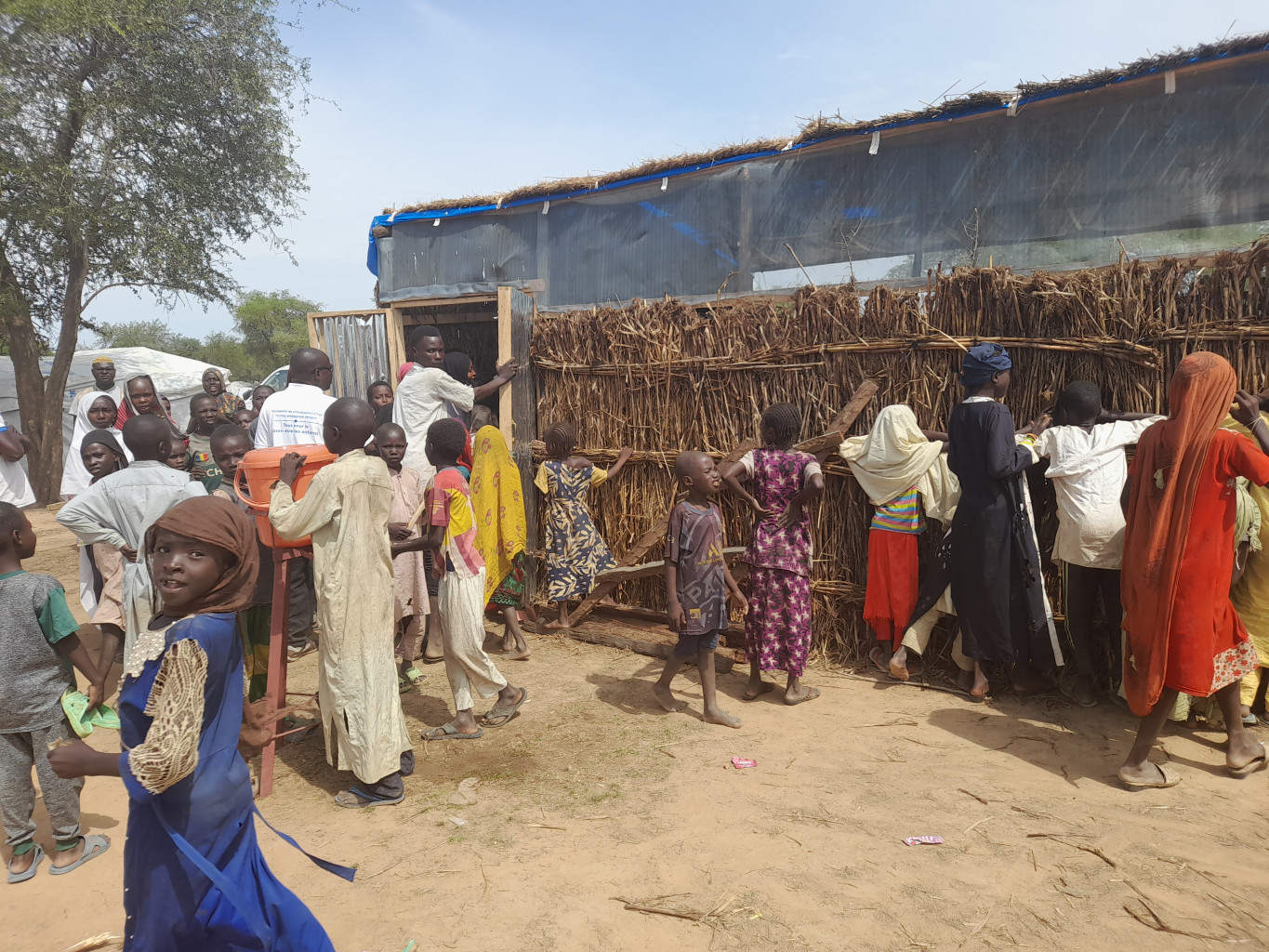05-09-2023 | di COOPI
Chad. New refugee camp for Sudanese people in place
In light of the escalating conflict in Sudan, COOPI – Cooperazione Internazionale, thanks to the support of the Italian Agency for Cooperation and Development (AICS), took part in the humanitarian response directed at Sudanese refugees in Chad, at the border with Darfur.
In response to the Sudanese exodus in Chad, COOPI participated in the construction of the new refugee camp in Zaboud, Sila province, which was completed in only one and a half month. In the first two months since the outbreak of the armed conflict in Sudan, which began on March 15 between the Sudan Armed Forces (SAF) and the Rapid Support Forces (RSF), thousands of refugees were received in spontaneous camps such as the one in Ademour, located just a few kilometers from the border with Sudan. The new camp in Zaboud allowed 25,000 people to enter a safe place in a very short time, and is currently hosting more than 40,000 refugees.
In particular, COOPI was involved in the process of resettling refugees to the new Zaboud camp and providing immediate humanitarian response to the Sudanese population. Protection, Psychological Support, Sanitation needs through the construction of latrines, hygiene awareness and kit distribution. These are COOPI's support activities for the "Immediate response for Sudanese refugees" project, funded by AICS. Special attention is given to women and children, who corresponds to 92% of refugees from Sudan.
Diego Regosa, coordinator of the Sudanese humanitarian emergency in Chad, describes the unfolding of activities:
There are now safe places of care for children. 3 Child Friendly Spaces have already received more than 1,000 children, and 2 more, which are being finalized, will be able to start receiving others from the beginning of September. This is where Peruyo and Zara, experienced COOPI animators, organize recreational, play and hygiene awareness activities, while our team of psychologists, such as Yabao, have already taken in more than 40 boys and girls. Often, we also receive support from local refugee volunteers who have taken the children's projects to heart.

The construction of the Zaboud camp:
On that June 2nd on the way back to Goz Beida we passed by what had been identified as the construction area for the new camp: right behind a village of 770 inhabitants, an immense flat space enclosed by a Wuadi (sandy river that fills with water in the rainy season). No wells or telephone network, no school or health centers for miles. Yet in a month and a half, a camp has emerged from nowhere with emergency shelters, a well connected to several water distribution points, mobile clinics and health centers set up in tents.

However, despite the promptness of humanitarian actors in building the new camp, the emergency is not over. By the end of August, the Zaboud camp, designed to accommodate 25,000 people, had already reached a capacity of over 40,000 refugees. The clashes in Sudan have also begun to affect the South Darfur region, forcing hundreds of new people a day to cross the border in search of safety. As a result, many displaced people are still living in spontaneous shelters waiting to be resettled. Since the beginning of the conflict in March, Chad has already received more than 180,000 people from Darfur, in addition to the Sudanese community already present in the territory, composed of 409,165 people (UNHCR, July 2023). Currently plagued by regional conflicts, desertification and shortages of running water and electricity, Chad now hosts the largest migrant population in West and Central Africa, some 600,000 people.
Projects targeting the refugee community are carried out with the support of the Chadian government and local authorities (such as the prefect of Adè, in the province of Sila), who are willing to cede land in a very few days to build new shelters. On the other hand, COOPI works with UNHCR and IOM, within the Joint Coordination Mechanism, to identify the hardest hit beneficiaries and acknowledge the diversity of needs.
To provide a humanitarian response to the conflict in Sudan, COOPI aids 35,000 people in the most secure areas, in Chad, on the border with Darfur, and in Gedaref, Sudan, on the border with Ethiopia. Thanks to its historical presence in the area, in Chad since 1994 and in Sudan since 2004, COOPI is able to reach the most vulnerable people such as women and children with food security, child protection and education projects. In the coming months, COOPI will continue to follow up on the needs of the displaced population with the construction of sanitation facilities and a second well to supply the other half of Zaboud camp.
For further information:
-
21-09-23: As the crisis deepens, NGOs warn of the cost of inaction and ask for more funding
-
31-07-23: Concrete aid to Gedaref
-
06-06-23: Humanitarian crisis's worsening. Do not forget Sudan!
-
29-05-23: Sudan crisis. COOPI for 35 thousand refugees in Chad and Sudan
-
23-05-23: INGO Forum condems recents attacks
-
03-05-23: International NGO Forum's call
-
28-04-23: COOPI remains in the country, even if international workers repatriate




 Chad
Chad
